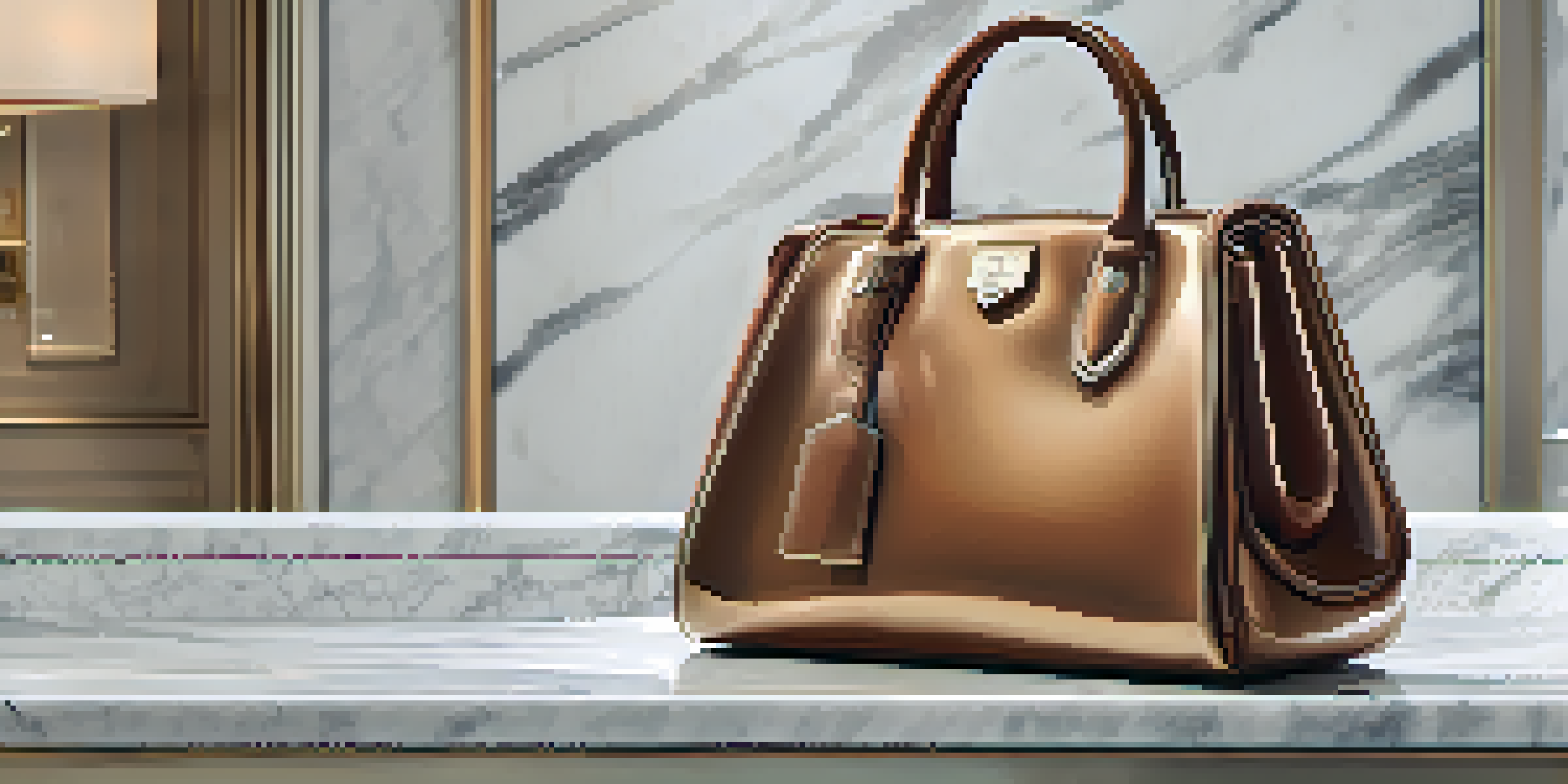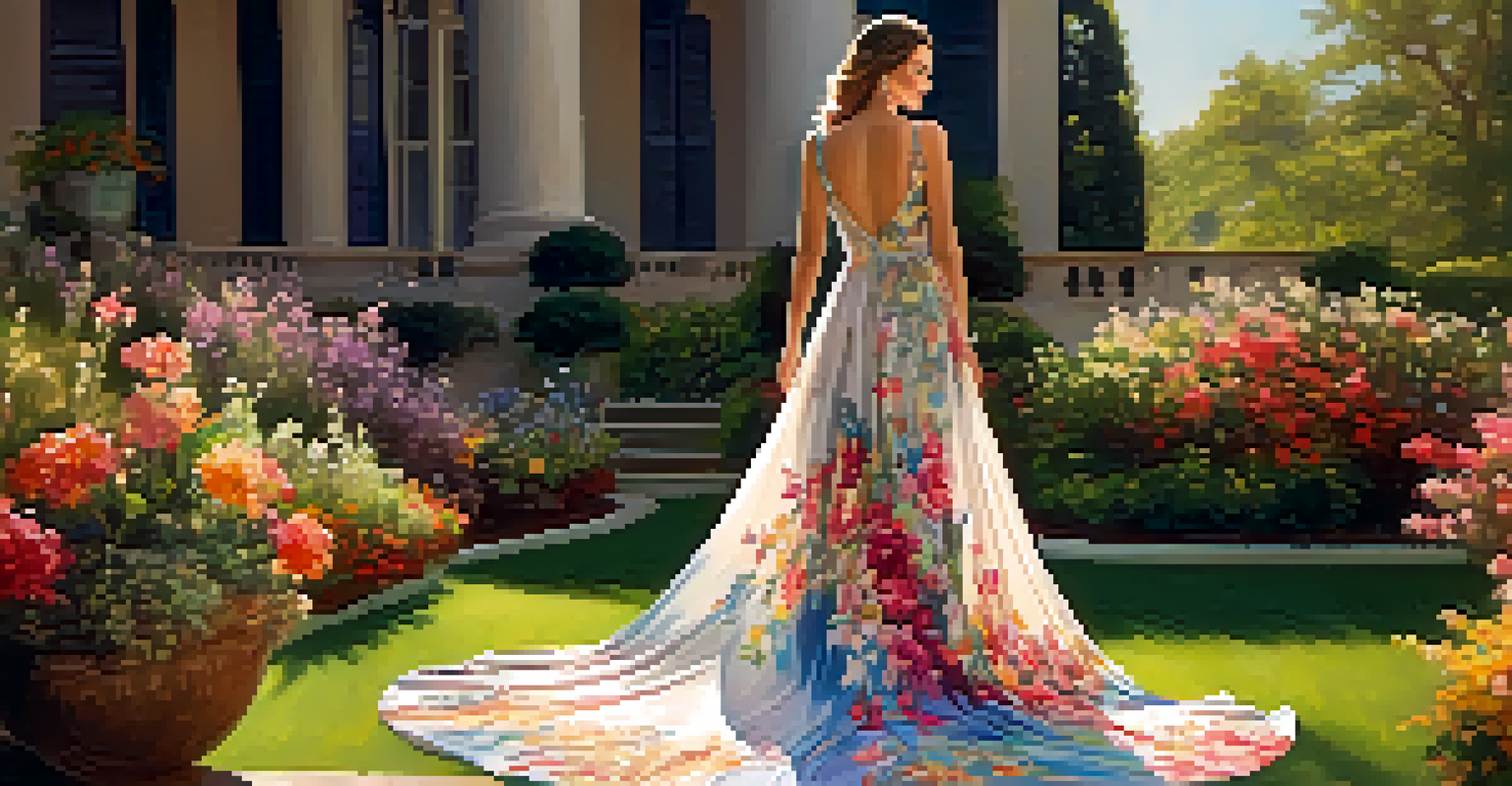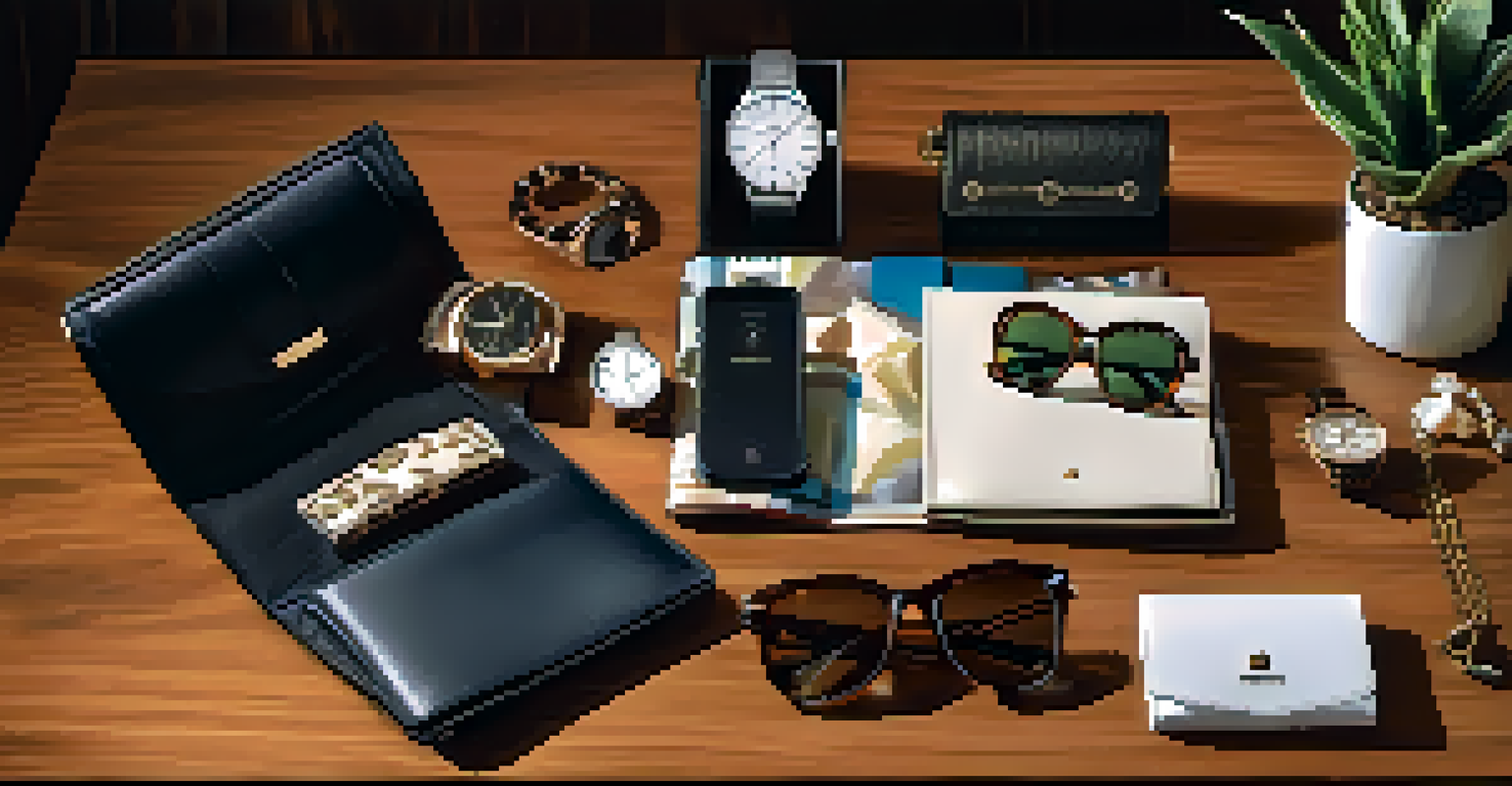Understanding the Psychology of Luxury Fashion Consumers

The Allure of Luxury Fashion: A Psychological Perspective
Luxury fashion is more than just clothing; it's a statement that reflects personal identity and social status. Consumers are often drawn to luxury brands due to their perceived exclusivity and quality. This allure is rooted in deep psychological needs, such as the desire for belonging and self-actualization.
Fashion is the armor to survive the reality of everyday life.
Many consumers associate luxury items with success and prestige, fueling their desire to acquire these products. This connection between luxury and self-image can create a powerful motivation to purchase. For instance, someone might choose a designer handbag not just for its quality but to signal their success to others.
Ultimately, understanding this allure helps brands connect with consumers on a deeper level. By tapping into these psychological drivers, luxury fashion companies can craft marketing strategies that resonate with their audience, making them feel valued and understood.
The Role of Brand Identity in Consumer Choices
Brand identity plays a crucial role in shaping consumer preferences in the luxury segment. A strong brand identity communicates values, heritage, and craftsmanship, which can significantly influence purchasing decisions. When consumers resonate with a brand's story, they are more likely to invest in its products.

For example, a luxury brand that emphasizes sustainability may attract consumers who prioritize eco-friendliness. This alignment of values fosters a deeper emotional connection and loyalty. Consumers often view their purchases as an extension of their identity, so brands that resonate with their values hold a significant advantage.
Luxury Reflects Identity and Status
Consumers are drawn to luxury fashion as it symbolizes personal identity and social standing, influenced by psychological needs for belonging and self-actualization.
Moreover, a well-crafted brand identity not only attracts customers but also creates a sense of community. Consumers who identify with a brand's values often feel a sense of belonging, which reinforces their loyalty and encourages repeat purchases.
The Impact of Social Influence on Luxury Fashion Choices
Social influence is a powerful factor in luxury fashion consumption. The opinions of friends, family, and even celebrities can sway a consumer's decision to invest in high-end fashion. This phenomenon is often amplified by social media, where influencers showcase luxury products, making them more desirable.
Luxury is in each detail.
When consumers see their peers or influencers wearing luxury items, they may feel a sense of pressure to conform to those trends. This can lead to a cyclical pattern where the desire for luxury items grows as more people become involved. For example, a celebrity endorsement can spark a surge in demand for a particular brand or style.
Understanding the importance of social influence enables brands to leverage these dynamics in their marketing strategies. By collaborating with influencers and creating a sense of community around their products, luxury fashion brands can effectively engage consumers and drive sales.
Emotional Factors Driving Luxury Fashion Purchases
Emotions play a significant role in the decision-making process for luxury fashion consumers. Many purchases are driven by feelings of joy, desire, or even nostalgia, rather than just practical needs. For instance, someone might buy a luxury dress because it reminds them of a cherished memory or a special occasion.
This emotional connection often leads to what psychologists call 'emotional branding,' where brands evoke specific feelings through their marketing. By creating an emotional narrative around their products, luxury brands can enhance the consumer's experience, making it more memorable and impactful.
Social Influence Drives Purchases
The opinions of peers and influencers significantly impact luxury fashion choices, often creating a trend-driven cycle of demand.
Additionally, emotional factors can lead to impulsive purchases, where consumers buy luxury items on a whim. This highlights the importance of creating a shopping environment that elicits positive emotions, encouraging consumers to indulge in their desires.
The Pursuit of Status: Luxury Fashion as a Social Symbol
For many, luxury fashion serves as a symbol of status and achievement. Wearing designer labels can signal wealth and success, often making individuals feel more confident in social situations. This desire for status can drive consumers to purchase luxury items as a way to elevate their social standing.
In this context, luxury fashion becomes a tool for social signaling, where individuals showcase their taste and lifestyle through their clothing choices. This phenomenon can be observed in various social settings, where certain brands are associated with exclusivity and prestige.
Understanding the pursuit of status helps brands position themselves effectively within the market. By highlighting the exclusivity and prestige of their products, luxury fashion brands can attract consumers looking to enhance their social image.
The Influence of Quality and Craftsmanship on Consumer Decisions
Quality and craftsmanship are paramount in the luxury fashion industry. Consumers are often willing to pay a premium for items that are well-made and durable. This perception of quality is not just about the material but also about the artistry and skill involved in creating each piece.
Many luxury brands emphasize their heritage and craftsmanship to justify their prices. For instance, a brand may highlight its artisanal techniques and the time spent creating each item, appealing to consumers' appreciation for quality. This storytelling adds value to the product in the eyes of the consumer.
Quality and Craftsmanship Matter
Luxury consumers prioritize quality and craftsmanship, associating premium prices with exceptional artistry and durability in products.
Moreover, the assurance of quality can foster brand loyalty, as consumers are more likely to return to brands that consistently deliver exceptional products. By maintaining high standards, luxury fashion brands can create lasting relationships with their customers.
The Digital Shift: Online Shopping and Luxury Fashion Consumers
The rise of online shopping has transformed the luxury fashion landscape, making it more accessible to consumers worldwide. With just a few clicks, shoppers can explore an array of high-end brands and products from the comfort of their homes. This convenience has reshaped consumer behavior and expectations.
However, shopping for luxury items online comes with its challenges, such as the inability to physically experience the product. Brands have responded by enhancing their online presence, offering virtual try-ons, detailed product descriptions, and high-quality images to replicate the in-store experience.

Understanding the digital shift is essential for luxury brands looking to connect with today's consumers. By embracing technology and prioritizing customer experience, they can create an engaging online shopping environment that resonates with their audience.
Conclusion: The Complexity of Luxury Fashion Consumer Behavior
Understanding the psychology of luxury fashion consumers is a multifaceted endeavor. From emotional drivers to social influences, various factors shape their purchasing decisions. By exploring these elements, brands can tailor their marketing strategies to better connect with their audience.
As luxury fashion continues to evolve, staying attuned to consumer psychology will be crucial for brands looking to thrive. By embracing change and adapting to new consumer behaviors, they can remain relevant in a competitive market.
Ultimately, luxury fashion is not just about products; it's about the emotions, stories, and identities associated with them. By recognizing this complexity, brands can foster deeper connections and build lasting relationships with their consumers.